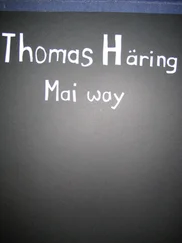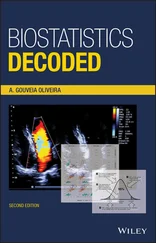Mai Jia - Decoded
Здесь есть возможность читать онлайн «Mai Jia - Decoded» весь текст электронной книги совершенно бесплатно (целиком полную версию без сокращений). В некоторых случаях можно слушать аудио, скачать через торрент в формате fb2 и присутствует краткое содержание. Год выпуска: 2014, Издательство: Allen Lane, Жанр: Современная проза, на английском языке. Описание произведения, (предисловие) а так же отзывы посетителей доступны на портале библиотеки ЛибКат.
- Название:Decoded
- Автор:
- Издательство:Allen Lane
- Жанр:
- Год:2014
- ISBN:нет данных
- Рейтинг книги:3 / 5. Голосов: 1
-
Избранное:Добавить в избранное
- Отзывы:
-
Ваша оценка:
- 60
- 1
- 2
- 3
- 4
- 5
Decoded: краткое содержание, описание и аннотация
Предлагаем к чтению аннотацию, описание, краткое содержание или предисловие (зависит от того, что написал сам автор книги «Decoded»). Если вы не нашли необходимую информацию о книге — напишите в комментариях, мы постараемся отыскать её.
Decoded — читать онлайн бесплатно полную книгу (весь текст) целиком
Ниже представлен текст книги, разбитый по страницам. Система сохранения места последней прочитанной страницы, позволяет с удобством читать онлайн бесплатно книгу «Decoded», без необходимости каждый раз заново искать на чём Вы остановились. Поставьте закладку, и сможете в любой момент перейти на страницу, на которой закончили чтение.
Интервал:
Закладка:
However, as Jinzhen pointed out, according to the original figure Mr Auslander had lived for 32, 232 days, a number that he obtained not by working out how many days there were in eighty-eight years, but how many days there were in eighty-eight years plus 112 days. While it was perfectly true that when he was calculating the 112 extra days he ignored the existence of leap years, it is also a fact that a day is not precisely twenty-four hours long. In actual fact a day is twentyfour hours plus almost a minute long — over the course of 112 days that would add up to 6,421 seconds, or in other words one hour and forty-seven minutes. So you have to deduct that one hour and fortyseven minutes from the original figure of 16 hours, 28 minutes and 32 seconds, which gives you a new total of 14 hours, 41 minutes and 32 seconds. That gives you the real figure for the non-existent time added to Mr Auslander’s life by the modern calendar.
Jinzhen went on to say that according to his information, Mr Auslander had been born at noon and he died at nine o’clock in the evening, so at the beginning and end of his life, there was at least ten hours of non-existent time being factored in, not to mention the 14 hours, 41 minutes and 32 seconds that he had accumulated during his lifetime. No matter how you worked it out, Mr Auslander had one whole day’s worth of non-existent time added to his lifespan. Jinzhen had clearly spent a lot of time thinking about what a leap year meant. You could say that since the existence of leap years had put his calculation of the number of days that Mr Auslander spent upon this earth out by twenty-two days, now he had got his own back by cutting down his mistake by twenty-four hours.
According to Master Rong, she and her father were both amazed at this development. They both felt impressed and moved by this evidence of the boy’s crystal-clear intellect. However, the most amazing thing was yet to come. A couple of days later, when Master Rong had just arrived back home in the afternoon, her mother (who was cooking downstairs) told her that her father was in Zhendi’s room and that she was to go and join them. When Master Rong asked why, her mother said that Zhendi seemed to have come up with some kind of mathematical theorem and that her father had been absolutely stunned.
As mentioned before, since the last 112 days of old Mr Auslander’s life had originally not been calibrated to take account of the existence of leap years; if you insist that each day consists only of twenty-four hours, in fact you are leaving 1 hour and 47 minutes, or 6,421 seconds, unaccounted for each year. The error introduced annually is 6, 421 seconds. In the cycle of one leap year, you can deduct the uncounted time from the non-existent time: –6,421 + 2,696 seconds, where 2,696 represents the number of seconds in 44 minutes and 56 seconds. In the second leap year cycle, the amount of non-existent time is (–6,421 + 2 x 2,696) seconds, and so on and so forth until you arrive at the calculation for the last leap year: (–6,421 + 22 x 2,696) seconds. Jinzhen had calculated the missing time, unaccounted for in his original figure for how many days Mr Auslander had lived, which he worked out as 88 years and 112 days, or 32,232 days, into twenty-three lines of elegant calculations, to wit:
(–6,421)
(–6,421 + 2,696)
(–6,421 + 2 x 2,696)
(–6,421 + 3 x 2,696)
(–6,421 + 4 x 2,696)
(–6,421 + 5 x 2,696)
(–6,421 + 6 x 2,696)
. .
(–6,421 +22 x 2,696)
Based upon this, and without any instruction from anyone, he had gone on to work out a mathematical formula:
X = [(first value + last value) x number] / 2* He had managed to work out a mathematical formula completely unaided.
[Transcript of the interview with Master Rong]
Mathematical formulae are not such bizarre and abstruse things that ordinary people cannot work them out. The fact is that anyone with a good knowledge of mathematics could reframe their knowledge in the shape of a formula — provided that they know that formulae exist in the first place. I could shut you up in a dark room, having told you in considerable detail about its contents. If I then demanded that you find me a particular object, even though the room was pitch-dark, you might well still be able to find it. If you used your intelligence, if you moved your feet carefully and felt with your hands, gradually working out what things have been put where, you ought to be able to find what I have asked you to look for. On the other hand if I had not told you what was in the room in the first place and then demanded that you go and find me a particular object, the chances are that you would not be able to do it.
Well, if he had been faced with a simple list of numbers, like say 1, 3, 5, 7, 9, 11 (not something complicated and irregular) and he had worked out a mathematical formula for that, it would have been much more easy to understand and we wouldn’t have been quite so amazed. You could compare this to someone making a piece of furniture from scratch without a single lesson from a carpenter. It doesn’t matter that other people have made the same piece many times before:* Conventionally, this formula would be given as: S = [(A 1+ A n) x n] / 2.
we would still be impressed at your abilities. If the tools and material at your disposal were of poor quality, if the tools were rusty and the wood rough, and yet you still managed to produce a decent piece of furniture, we would all be doubly impressed. That is what Zhendi had done: he had effectively taken a stone hand-axe and a tree standing in the forest and turned them into a beautiful piece of furniture. We were that amazed, we could hardly believe the evidence of our own eyes. It was completely unbelievable!
After this, we felt that it would not be a good idea to keep him on at primary school, so Daddy decided to enrol him in the middle school attached to N University. The school was only a couple of doors down from our house, so if he went there as a boarder, it would quite possibly be even more damaging to Zhendi’s fragile psyche than if we had just thrown him out onto the streets. So, at the same time as Daddy decided to enrol Zhendi in the first year at middle school, he also decided that he would have to continue living with us. The fact is that after Zhendi came to live with us that summer, he never left until he got his first job. . [To be continued]
Children like giving each other nicknames; any child in the least bit peculiar will find himself being given a nickname by his classmates. When the other pupils at the school first caught sight of Jinzhen’s huge head, they called him ‘Big-head’. Later on they realized that he had all sorts of peculiar habits — like he really enjoyed counting the hordes of ants that marched backwards and forwards across the playground and was completely oblivious to anything else while he was doing it, or that in the winter he would always wear a tatty old scarf trimmed with dog-fur (apparently this had been a present from old Mr Auslander), or that he would fart and belch in class, without the least sign of restraint, just letting it all hang out as it were. People really did not know how to take him. Another thing: he always wrote his homework in duplicate — once in Chinese and once in English. What with one thing and another, people felt that there was something wrong with him, that he must be stupid. But at the same time his grades were fantastic, really impressive, better than what the rest of the class could achieve put together. So they came up with a new nickname for him, ‘Idiot-savvy’ by which they meant ‘idiot savant’. This nickname was particularly apposite because it encompassed his behaviour both inside and outside the classroom. Like many nicknames it seemed to denigrate its possessor, but at the same time it had an element of praise — a perfect mix of contempt and respect: everyone felt it was the right name for him. Everyone called him that.
Читать дальшеИнтервал:
Закладка:
Похожие книги на «Decoded»
Представляем Вашему вниманию похожие книги на «Decoded» списком для выбора. Мы отобрали схожую по названию и смыслу литературу в надежде предоставить читателям больше вариантов отыскать новые, интересные, ещё непрочитанные произведения.
Обсуждение, отзывы о книге «Decoded» и просто собственные мнения читателей. Оставьте ваши комментарии, напишите, что Вы думаете о произведении, его смысле или главных героях. Укажите что конкретно понравилось, а что нет, и почему Вы так считаете.












